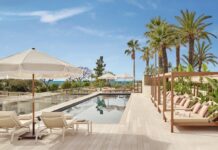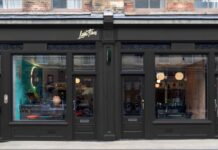Adrian Zecha and Naru Developments have announced the opening of Azumi Setoda, the brand’s debut property. Located on Ikuchijima, a small and tranquil island in the Japanese Seto Inland Sea, the hotel balances tradition and modernity to offer the ryokan hospitality experience to the contemporary traveller.
Azumi Setoda is located within a 140-year old Japanese residential compound which has been sensitively restored by Kyoto-based architect Shiro Miura. An expert in private residences and trained in the sukiya style of Japanese architecture, Miura has respected the original purpose of the building whilst reimagining the next century of its life.
Offering a thoughtful mixture of open and secluded spaces, the ryokan is defined by the architect’s bold, unconventional take on the traditional cedar kakine (fence): created to enable a harmonious atmosphere and experience throughout the interiors and garden.
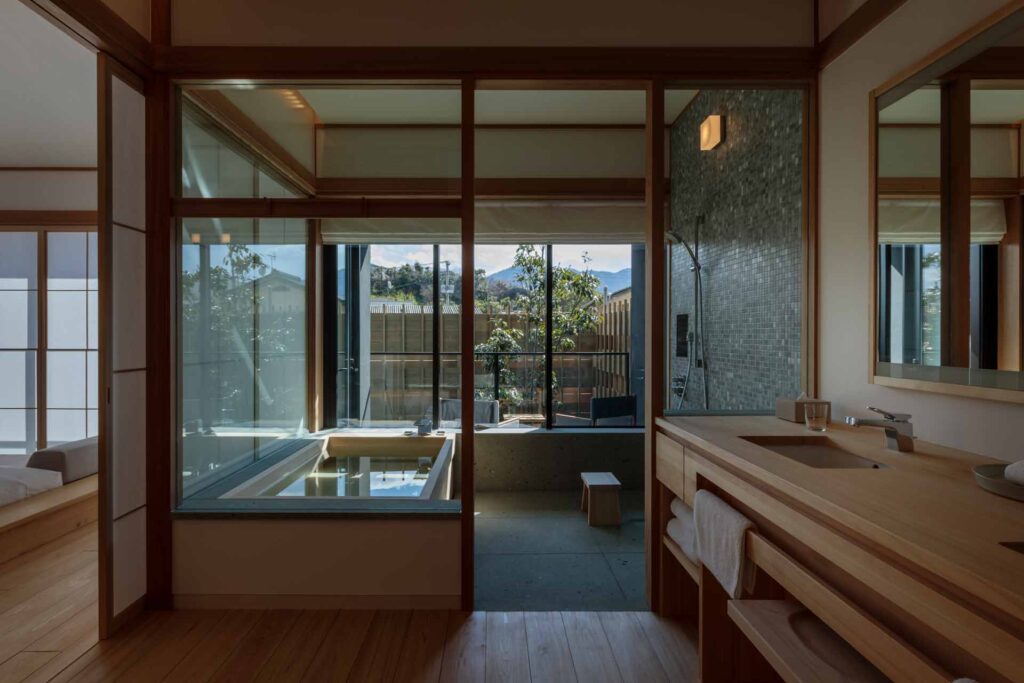
For example, the main dining room features communal tables for guests to interact; by contrast the Azumaya, a quiet multipurpose garden room, offers space for secluded meditation. Offering further privacy, each guest suite or duplex has its own private garden or balcony with a unique view of the kakine, designed by WA-SO landscape architects.
Custom furniture within the ryokan has been co-created with Doi Mokkou, a local artisan specialising in wood. The pieces use exclusively local natural materials – primarily unfinished Japanese Cypress – designed to both blend into the interiors and harmonise with the garden view, including key pieces built at custom heights so as to offer optimal views of the interior courtyard.
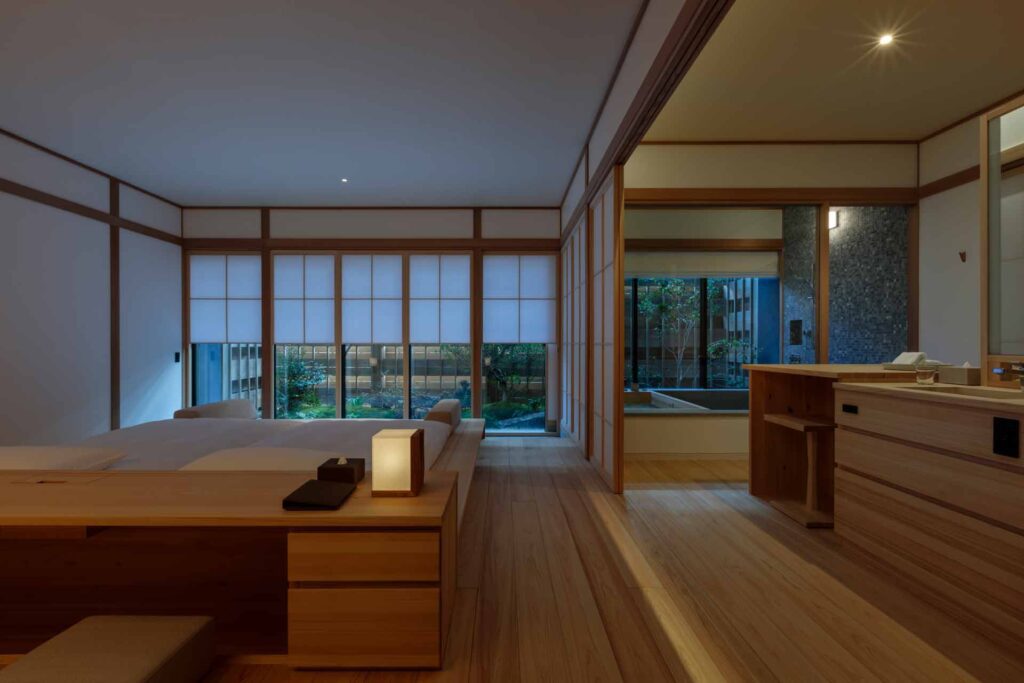
The restaurant is centred around a communal dining experience; although there are three characterful private dining rooms for those who prefer privacy. Rather than traditional ‘gastronomy’, the F&B team defines the menu as elevated home-cooking, or soul food. The food offering is an expression of local ingredients and the abundance of the surrounding land, focusing on a feasting menu of seafood and fresh citrus and vegetables. The menu will change seasonally, with the flexibility to adapt daily depending on what the fresh catch or the best crop available is.

Given that Setoda has always been a hub for sea trade and transportation, the menu will also represent an intersection of cultures, featuring herbs and spices that offer a sense of the Asian or Persian influences within the Japanese tradition. Guests will experience a Setoda feast using small delicate palettes to dynamic large platters, some of which are gifted by the Horiuchi family from their antique collection.
The yubune bathhouse, also designed by Shiro Miura, resides across the street from Azumi Setoda. Guests are welcomed into the building by a repurposed tablet bearing the motto of the original owners, the Horiuchi Family: “New Day, New Wind”.
Typically, tiled artwork found in public bathhouses features Mount Fuji as a motif, however Japanese artist Mai Miyake opted to depict the scenery of the island and Setouchi’s rich ocean life within the intricate wall murals.
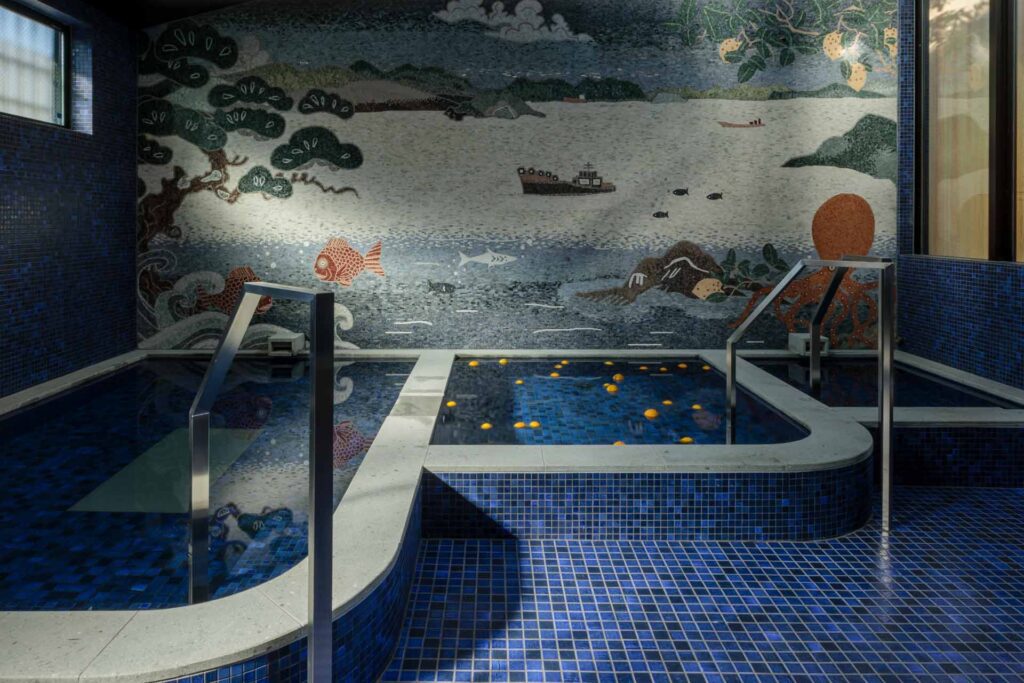
In a gesture to the wider community of Setoda, Azumi will operate ybune not only for its ryokan guests, but as a public bathhouse where all are invited to learn about and experience Japanese bathing culture, lemon and salt bathing, and sauna.
As a result of direct community feedback, as well as collaboration with the Azumi team, a mixed-use facility called Soil Setoda will open in April to function as ‘the living room of the city.’ Its facilities include short-to-long term accommodation, work lounge, activity centre, coffee roaster and restaurant. Its aim is to create an environment that is both lively and relaxed, conducive to a wide demographic and social and cultural exchange. Just a minute away from the port of Setoda, it also marks the entrance to the Shiomachi Shotengai

Publisher of Hospitality and Leisure News, 365 Retail, Retail Source and organiser of the Creative Retail Awards.



